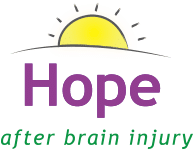
What we now understand about traumatic brain injury, trauma, and overall brain health is remarkable. However, in countless cases, patients in the various stages of declining health from a traumatic brain injury go unrecognized throughout many areas of our conventional medical system. There are significant gaps in brain injury care, from a lack of consistent TBI health protocols, referrals to specialists, delays in diagnosis, patient understanding, patient education, and access to advanced medical professionals at the forefront of innovative diagnostics, effective treatment plans, and mental health counseling specializing in brain injury.
Every year most traumatic brain injuries recorded in the United States are mild to moderate concussions. Patients may walk out of emergency rooms with diagnoses such as neck sprains, whiplash, and coup contrecoup injuries, which are just a few descriptions for those with the possibility of a mild to moderate traumatic brain injury. The good news is that many patients will recover. However, there is a reason brain injury is known as an invisible injury, what others see from the outside can resemble normalcy for months, but what might be developing behind the scenes is a health crisis our conventional medical system may be unprepared to recognize, discuss, and effectively treat. Symptoms from a concussion and microscopic brain damage can flow throughout many parts of the brain and body.
Confused and scared brain-injured patients can struggle to communicate with their doctors their experience, ranging from a disruptive onset of physical to mental health problems, unlike anything they have ever faced. They often leave medical appointments feeling unheard and misunderstood. Dr. Daniel Amen, the founder of Amen Clinics, shared some incredible insights with Dr. Tim Clinton, host of the well-known podcast Family Talk, a ministry of the Dr. James Dobson Family Institute. During the interview, Dr. Amen quoted, “mild traumatic brain injury ruins people’s lives, and nobody knows about it.”
Before their traumatic brain injury, some patients may have a prior health history such as depression, anxiety, or trauma, even if it was years ago. After their concussion, a worsened re-occurrence of earlier health conditions may appear along with the possibility of PTSD, which is a common overlapping condition among brain injury survivors. Patients can end up in the hands of healthcare professionals, potentially pointing to their health history instead of their recent brain injury as the culprit for their troubles.
Finding Hope and Support
Advancements in MRI imaging will soon help doctors sort through the entangled symptoms of PTSD and traumatic brain injury. The new innovative diagnostic equipment is one more major stride toward hope, helping long-awaited suffering patients finally receive their desperately sought after answers.
Founder, Executive Director, and licensed professional counselor Dr. Deana Adams, Ph.D. of Hope After Brain Injury, specializes in treating TBI, trauma, anxiety, and depression. She noticed a common link among hundreds of TBI survivors over the past several years; their tendencies towards a loss of hope and lack of recovery progress associated with feeling misunderstood by the healthcare community, their family, and friends. Dr. Adams understands the missing elements of our healthcare system for traumatic brain injury patients, inspiring the vision for Hope After Brain Injury. In collaboration with Patti Foster, TBI survivor and Vice President for Hope After Brain Injury, inspirational podcasts, educational seminars, and informative lessons are offered addressing brain injury survivors’ frequent struggles, helping them overcome everyday obstacles.
The team at Hope After Brain Injury shares a diverse and integrative perspective of what recovery from traumatic brain injury includes. They aim to fulfill the vast need for hope, faith, understanding, and support among brain injury survivors worldwide.

Leave A Comment
You must be logged in to post a comment.